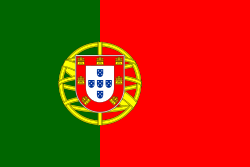Extent
Transparency International’s Global Corruption Barometer 2013 reveals that political parties, Parliament, the judiciary and the military are the most corrupt institutions in Portugal. [1]
Transparency International's 2024 Corruption Perceptions Index scored Portugal at 57 on a scale from 0 ("highly corrupt") to 100 ("very clean"). When ranked by score, Portugal ranked 43rd among the 180 countries in the Index, where the country ranked first is perceived to have the most honest public sector. [2] For comparison with regional scores, the best score among Western European and European Union countries [Note 1] was 90, the average score was 64 and the worst score was 41. [3] For comparison with worldwide scores, the best score was 90 (ranked 1), the average score was 43, and the worst score was 8 (ranked 180). [4]
The exposure of high-profile corruption cases in the media and the limited political engagement has contributed to poor public perception of political corruption in Portugal. Recurring corruption scandals involving high-level politicians, local administrators and businesses abusing public funds have revealed that safeguards to counter corruption and abuse of power have been relatively inefficient, according to the National Integrity System Assessment 2012 by the Portuguese chapter of Transparency International (TIAC). [5] [6]
Regarding business and corruption, several sources indicate that corruption plays a limited role in Portugal's business culture. Foreign companies reportedly encounter limited corruption, but they do not consider corruption an obstacle to foreign direct investment. [7] [8]
The EU report on corruption revealed that the Portuguese perceive a high level of corruption (with 90% answering that corruption is widespread, compared to an EU average of 76%). However, the same report reveals that, when asked if they had actually witnessed corruption, only 1% responded positively (with an EU average of 5%). [9]
This page is based on this
Wikipedia article Text is available under the
CC BY-SA 4.0 license; additional terms may apply.
Images, videos and audio are available under their respective licenses.
